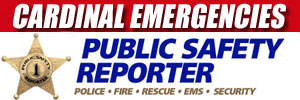When the worst happens and you need to call 9-1-1 for help, there are some tips you should follow when calling. Many 9-1-1 calls involve a fairly simple transfer of information about the nature of the problem and the address. But some calls are extremely urgent or involve transferring a complex set of information in a short time period, and adrenaline will be flowing and tensions will be high, so it’s important to stay composed. You need to make sure the operator can gather all the information they need to send you help. Keep in mind that the 9-1-1 operator is trained to get the essential information first, get the proper resources dispatched, and then get additional helpful details and follow-up information, so don’t hang up (see below).
Know Your Location
This may seem simple enough, but details are important. Take a deep breath, look around, and get a real idea of what’s around you. Simply telling the operator that you’re in Chicago won’t be much help. 9-1-1 operators tend to prefer getting an accurate numeric street address and the name of the street and village or city. Exact intersections with the street name for each street are also preferred. Know what cross streets you’re on and know the name of the neighborhood. If you happen to be on a one-way street or a dead-end street, that is critical information, especially for a fire and ambulance response. Keep in mind the 9-1-1 operator likely has a map that shows your approximate location when you call, but this is not always true for every incident or location. Also, technology capability varies for different 9-1-1 centers.
Stay on the Line
Never hang up on a 9-1-1 operator. They can’t help you if you can’t give them information. They’re not only listening to you, they’re also listening to what is going on in the background, and they are likely relaying information to another dispatcher that is actually dispatching resources to your location. If the situation is still dangerous and you feel that the phone is distracting you or putting you in further danger, put your phone in your pocket or a sock if possible and you have no pockets. If you’re helping a person collapsed on the floor or ground, put the phone on speakerphone and place it on the floor or ground. If you’re hiding from an intruder or assailant, you need to tell the 9-1-1 operator, which will likely cause them to become much more patient with you if you are not answering immediately or are speaking very softly. Remember you might need to stop the phone from making noise from ringing or from audio from voice — or from illuminating — to hide from an assailant.
If you call 9-1-1 by accident, tell the operator that you called accidentally and that everything is alright. If you hang up right away before they answer, they will try to call you back, and if you don’t answer, they’ll likely send a police officer to your location to make sure everything is okay. This is known as a check for well-being for an abandoned 9-1-1 call.
Provide Medical History
When on the phone, and when the EMTs show up, try to provide all the personal medical history you can. An emergency medical situation is not the time to become shy and withholding. They’re there to help, so let them. In many cases the 9-1-1 operator will try to give you CPR or first aid instructions.
Try to Stay Calm
You called 9-1-1 because there is a medical emergency, someone may be dying, or there is a fire or physical threat. It’s a tense time and emotions are running high, but it’s best to maintain your composure and stay calm. Talking fast or yelling into the phone or babbling unnecessary information will make it harder for the operator to know what the problem is and assess the situation promptly. For the benefit of everyone involved, take a deep breath and try to slow down. Some 9-1-1 operators tend to be abrasive on the phone, or seem like they’re on a power trip. They’re trying to get you to provide information in an organized manner, but sometimes they get cranky and don’t register your information even when you have provided it clearly. Whether the cause is that they’re overwhelmed with multi-tasking or just being rude, you need to be assertive without getting upset or abusive in return. Behaving properly will get them the message that you want to tell them, and the message that they need to hear to get you the proper help.
Keep your Eyes Open
In some situations, like a bad crash scene, it might be difficult to look at what happened, but the operator will need to know what the scene looks like. They’ll need a description of the accident or vehicles involved so they can decide what kind of help is needed. You might think they’re are asking you a lot of questions with obvious answers, but they’re trying to verify the information about the scene, and if the incident is a dire emergency, there is usually another operator dispatching the call while the person you are talking to is gathering important information from you.
Looking around is also beneficial for your safety. If a car is on fire and it starts spreading, you’ll want to move away quickly. There could be downed power lines, leaking chemicals could be released that are hazardous, or there could even be threatening or dangerous people at the scene that become even more aggressive in an emergency. You also need to be alert for other driver’s that might not see you, and could hit you.

